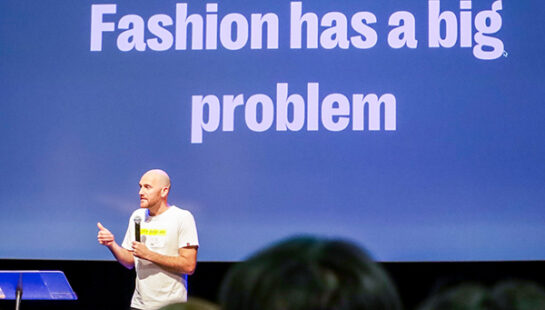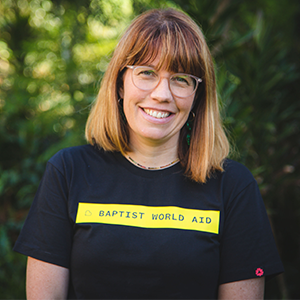I was thrilled to be able to tag along with our Programs team, on a regular visit to monitor our work in Bangladesh. These are some of my reflections related to a cornerstone of our advocacy work—the Ethical Fashion Guide and Report.
Rana Plaza Collapse
On 24 April, 2013 the Rana Plaza—a garment manufacturing facility on the outskirts of Bangladesh’s capital, Dhaka—catastrophically collapsed and over 1,100 people lost their lives.
One of the deadliest events in modern industrial history, the tragedy exposed some of the brutal realities of the global fashion industry and sparked an outcry for greater accountability regarding the rights of workers, their safety and standard living wages.
The Rana Plaza disaster was a turning point. It highlighted the need for a more ethical fashion industry, and in its wake, organisations like Baptist World Aid acted. The Ethical Fashion Guide was birthed during the same period, helping consumers make informed purchasing decisions by evaluating fashion companies based on their ethical and environmental standards.
Now a decade-strong movement, our Ethical Fashion research demands more transparent and accountable production practices, empowering consumers to make informed choices regarding their purchases.
Poverty in Plain Sight
My time among the Bengali people has left me struggling for appropriate adjectives to describe the experience. If I had to choose one, ‘humbling’ and ‘overwhelming’ would compete for precedence.
With 170 million people living in a space two-thirds the size of the state of Victoria, the sheer density of humanity is difficult to comprehend. Everywhere, everywhere, there are people—on the streets, in markets, in ‘baby-taxis’ (three wheeled rickshaws)—every available space is taken, and while overwhelming, somehow, it keeps moving forward.
Most striking to Australian eyes though is the poverty that exists in plain sight. Nearly as many people live in Dhaka, the capital city, as in the entire country of Australia. Whole families share tiny spaces in makeshift shelters or live openly on the street, without access to basics such as clean water. For me, this created a paradox of both gratitude and guilt.
In this mix, Bangladesh remains one of the largest exporters of clothing in the world, and its garment factories fuel much of the local economy outside of agriculture. There has been significant progress in terms of worker safety and building regulations after the Rana Plaza disaster, but what is regarded by locals as a ‘good job’ still means six, 12 hour working days, with wages that just cover the essentials.
Reflections and Takeaways

A deeper sense of personal urgency concerning our continuing effort for a more ethical fashion industry was a key takeaway from this experience.
The realities of the garment industry are difficult to ignore (especially in Bangladesh where significant ‘progress’ has been made) and I’m reminded that we, as consumers, hold significant power; every decision we make, each piece of clothing we buy (or don’t) or recycle (or don’t) has an impact.
The vast majority of us want to contribute to a fairer, more just world. One way we can do this is by supporting Baptist World Aid’s End Worker Exploitation appeal. With a donation, you can help expose and address injustice in the garment industry—making a lasting change in the lives of those who need it most.
Please also join with us in praying and advocating for a world where all people can experience the fullness of life that God intends for us. God’s call is for justice, compassion, and responsibility so we can move one step closer to a world where exploitation is a thing of the past, and dignity is restored to every one of God’s image-bearing human beings.
God’s call is for justice, compassion, and responsibility so we can move one step closer to a world where exploitation is a thing of the past.
Together, we can contribute to a world where the lives of garment workers (and all marginalised communities) are transformed—not just through charity, but through a commitment to long-term, systemic change.



 Sophia Russell,
Sophia Russell,

 Meredith Benson,
Meredith Benson,